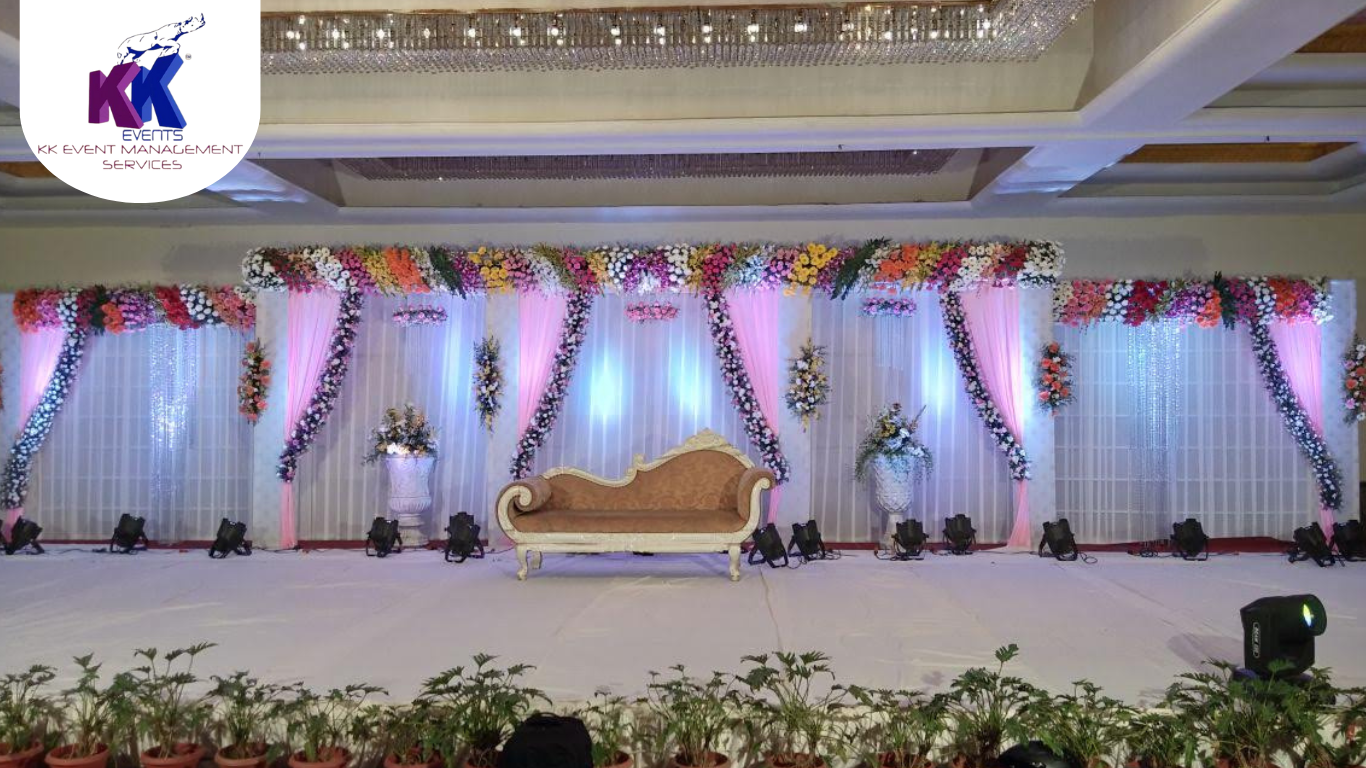A destination wedding is a dream come true for many couples. Whether it’s a beach wedding by the ocean, a rustic ceremony in the mountains, or an exotic celebration in a foreign country, destination weddings offer a unique and memorable experience for both the couple and their guests. However, planning a wedding in a distant location comes with its own set of challenges. To ensure everything goes smoothly, careful planning and attention to detail are essential.
Here’s a comprehensive guide with tips for planning a destination wedding that will help you navigate the process smoothly and create the wedding of your dreams.
1. Choose the Right Destination
One of the first and most important decisions is selecting the perfect location for your destination wedding. Consider the following factors:
- Personal Connection: Choose a location that holds sentimental value or reflects your personality and tastes as a couple.
- Accessibility: Ensure that the destination is easily accessible for most of your guests, especially if it involves international travel.
- Climate: Research the weather conditions during your chosen wedding date to avoid any unpleasant surprises, like monsoon season or extreme heat.
- Legal Requirements: Different countries and even states have specific requirements for marriage. Ensure that the paperwork, residency requirements, and other legalities are in place well ahead of time.
Popular destination wedding locations include tropical beaches, European cities, historical venues, and scenic countryside spots. Make sure the destination fits your vision, budget, and the overall experience you want to offer your guests.
2. Set a Realistic Budget
Destination weddings can be more cost-effective than traditional weddings, but they can also be expensive depending on the location and arrangements. Here’s what to consider while budgeting:
- Travel and Accommodation Costs: Include the cost of flights and lodging for you, your family, and key guests (if covering).
- Wedding Package Costs: Many venues offer destination wedding packages that include catering, decor, photography, and sometimes even a wedding planner.
- Local Vendors vs. Bringing Your Own: Hiring local vendors can be more cost-effective, but if you prefer vendors from your home country, consider the travel and accommodation costs for them too.
- Additional Events: Destination weddings often span multiple days and include pre-wedding events like welcome dinners, excursions, or post-wedding brunches, which can add to the overall cost.
Make a detailed budget plan and account for unexpected expenses like currency exchange rates, taxes, and service fees.
3. Hire a Local Wedding Planner
Hiring a local wedding planner who is familiar with the destination is one of the best investments you can make for a destination wedding. Here’s why:
- Local Expertise: A planner with knowledge of local vendors, legal requirements, and the culture will save you time, money, and stress.
- Communication and Negotiation: They can help you navigate language barriers and negotiate with vendors on your behalf.
- On-the-Ground Coordination: Having someone physically present at the destination to oversee arrangements, deliveries, and last-minute changes is invaluable.
Look for a planner who specializes in destination weddings, has experience with your chosen location, and comes highly recommended.
4. Send Save-the-Dates Early
Destination weddings require guests to plan ahead, so it’s important to give them ample notice to make travel and accommodation arrangements. Here’s the timeline:
- Save-the-Dates: Send out save-the-dates at least 8-12 months before the wedding, so guests have time to arrange for time off work, book travel, and budget for the trip.
- Formal Invitations: Follow up with formal invitations 4-6 months before the wedding with details on the destination, accommodations, and a rough itinerary of the wedding events.
Consider setting up a wedding website with details like travel tips, accommodation options, and things to do at the destination. This will help your guests feel prepared and excited about the trip.
5. Research Legal Requirements for Marriage
If you’re getting legally married at your destination, make sure to understand the marriage laws and requirements of the country or state:
- Residency Requirements: Some countries require you to be in the country for a certain number of days before the wedding.
- Documents: You may need birth certificates, passports, affidavits of eligibility, and sometimes translated documents if the destination is non-English-speaking.
- Ceremony vs. Symbolic Wedding: If the legalities are too complicated, consider having a symbolic wedding at the destination and taking care of the legal marriage in your home country.
Hiring a local wedding planner can help with gathering the necessary paperwork and ensuring all legal requirements are met.
6. Visit the Destination in Advance
If possible, visit your chosen destination at least once before the wedding to finalize important details. During this trip, you can:
- Tour Venues: Visit your wedding venue, reception site, and accommodations in person to make sure they meet your expectations.
- Meet Vendors: Meet with local vendors like photographers, florists, caterers, and musicians to discuss your vision and preferences.
- Plan the Decor: Work with your wedding planner to choose decor, table settings, and seating arrangements in person.
- Food Tasting: Sample the menu to ensure that it aligns with your tastes and preferences. This is especially important if you’re serving local cuisine.
If traveling beforehand isn’t feasible, consider doing a virtual tour with your planner or venue manager.
7. Create a Travel-Friendly Wedding Wardrobe
Since you’re traveling for your wedding, you’ll want to ensure that your wardrobe is practical and suited to the destination:
- Lightweight Fabrics: For beach or tropical weddings, opt for light, breathable fabrics like chiffon, silk, and cotton to stay comfortable.
- Transportation: Make sure your wedding dress and the groom’s attire can be safely packed and transported. Contact the airline ahead of time for garment storage options.
- Weather Considerations: Depending on the climate, consider extra accessories like sunhats, shawls, or even a chic umbrella in case of rain.
Keep your makeup and hairstyle simple and elegant, especially in locations with high humidity or windy weather.
8. Help Guests with Travel and Accommodation
Not all of your guests may be seasoned travelers, so providing them with assistance in booking travel and accommodation can be a great help:
- Group Discounts: Look into booking group travel or accommodations to secure discounts for your guests.
- Block Hotel Rooms: Many resorts and hotels offer discounted rates for group bookings. Make sure you block off rooms for your guests well in advance.
- Travel Agent: Hiring a travel agent who specializes in destination weddings can take the pressure off your guests when it comes to booking flights, transportation, and hotels.
Include all of this information on your wedding website to make it easy for guests to plan their trip.
9. Plan Activities for Guests
Since your wedding is a destination event, guests may want to make a vacation out of it. Consider planning activities and experiences for them:
- Pre-Wedding Events: Host a welcome dinner, a casual meet-and-greet, or a beach day to help everyone relax and mingle.
- Excursions: Depending on the destination, offer optional group activities like sightseeing tours, water sports, or a cultural experience.
- Post-Wedding Brunch: A farewell brunch the day after the wedding is a nice way to thank your guests for traveling and celebrating with you.
While planning activities, give guests some free time to explore on their own or relax.
10. Keep Decor Simple
Destination weddings are often held in stunning natural settings, so there’s no need for over-the-top decorations. Instead, enhance the beauty of the location:
- Use Local Flowers: Incorporating local, in-season flowers and greenery adds an authentic touch while keeping costs down.
- Minimal Decor: Let the setting speak for itself. For example, a beach wedding may only require simple drapery, lanterns, and candles to create a romantic ambiance.
- Portable Decorations: Keep decor easy to transport, especially if you’re bringing items from home.
Work with your planner to source decor that complements the venue’s natural beauty without overwhelming it.
11. Be Prepared for Weather Surprises
No matter how much you plan, Mother Nature can be unpredictable. Have a backup plan in case the weather doesn’t cooperate:
- Indoor Backup Venue: For outdoor weddings, make sure the venue has an indoor option in case of rain or wind.
- Tent Rentals: For beach or garden weddings, consider renting tents to protect guests from sun or rain.
- Timely Weather Check: Keep an eye on the weather forecast as your wedding day approaches, and adjust plans as necessary.
Discuss contingency plans with your wedding planner to ensure a smooth event, come rain or shine.
Conclusion
Planning a destination wedding can be an exciting but challenging experience. By choosing the right location, budgeting wisely, and hiring local experts, you can make the process smoother and more enjoyable. Remember to give your guests plenty of notice, and take the time to visit the location or work closely with your planner to ensure everything is perfect. With the right planning and a bit of flexibility, your destination wedding will be a magical and unforgettable event!





